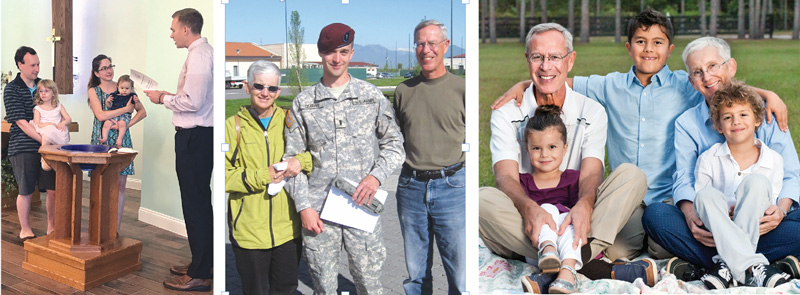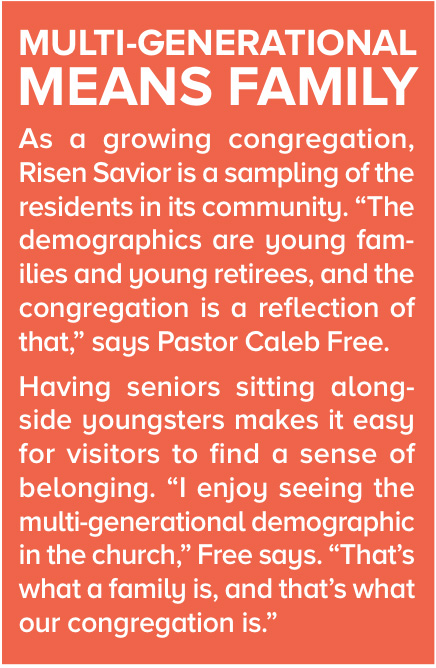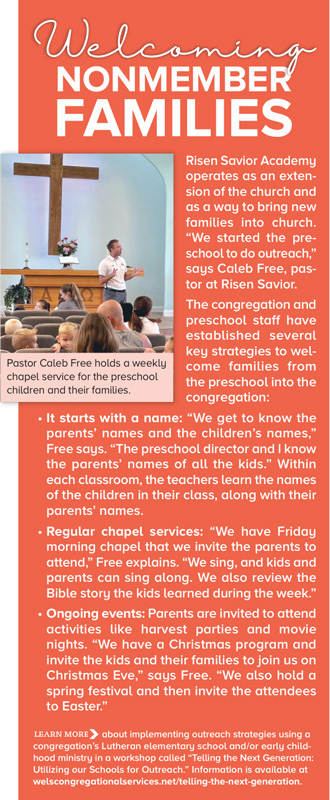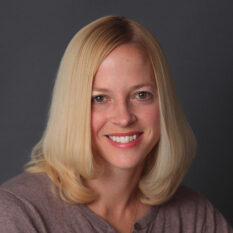 |
After retiring, a couple discovers a church where Martin Luther’s reformed teachings preside and Jesus’ free and all-encompassing grace is preached.
During their working years, Jack and Cathie Dearing moved more than 20 times. At every stop, they toured different congregations and typically settled into a Catholic church. While they appreciated the liturgical setting of the worship, they were uncertain about the equation between good works and salvation. They puzzled over some questions. How many rules did they have to follow to skip purgatory or reduce the time spent there? How much was necessary to earn one’s way to heaven?
The Catholic Church and religion were deeply rooted in the couple’s family history. “My grandfather was a Presbyterian pastor and missionary to Cuba,” Cathie recalls. Later her grandfather spent time in Texas as a chaplain in the US Army. Cathie’s father, after being raised in the Presbyterian church, married and converted to Catholicism. He was in the military during his career, and Cathie grew up with six siblings. The children went to different schools, including Catholic and public schools.
Jack also had strong ties to the Catholic Church. “My family background is loaded with priests, nuns in the Loreto order, and uncles who were in the brotherhood as Brown Franciscans,” he explains. Jack attended parochial elementary and high schools, enrolled at West Point, and entered the military.
“At West Point I was an altar boy,” Jack recalls. “I met a lot of priests who became friends, and I admired them.” Jack was curious about the vows for celibacy or poverty that these friends and some of his relatives had taken. “I always wondered if that put you on a higher rung of the ladder,” he says.

A survey of churches
Jack and Cathie met at West Point, and shortly after getting married, they were stationed in Germany. During their four years there, they visited Coburg, where Martin Luther spent time while waiting for news from Augsburg about the fate of the Lutherans confessing their faith before the Emperor. “We went to Lutheran services, and it opened our eyes to the history of the Reformation and the similarities between worship services with a liturgical focus and emphasis on the Last Supper,” Cathie explains. “We knew we had quite a bit in common.”
When they returned to the United States, the couple started a family and attended Catholic services. “There’s a tendency to stick with what you were raised,” Cathie says. Jack spent 15 years in the military and then switched into business. His different roles led the family to various cities and states. At each point, Jack and Cathie attended different churches as they settled. “We have seen a lot of churches, from Orthodox to Byzantine,” Cathie notes. “We tried out other Christian styles of worship and always went back to Catholic churches because of the liturgical service.” They encouraged their three children to worship with other kids who shared their faith, to become involved in service opportunities, and to be open-minded.
 While they valued the Catholic service, Jack and Cathie were uncertain about some of the regulations. Cathie’s ponderings, already started in her youth, increased during her adult years. One rule involved the expectation to eat only fish on the first Friday of every month. “Humorously I would argue, ‘I don’t really think God gets upset with me eating a bologna sandwich on Friday,’ ” she recalls. Another dilemma centered on the duty of attending church every Sunday and the military deployments that would sometimes hinder their ability to be physically present at a service. “At some point I separated in my mind what I thought came from God and what I thought came from some group with which I didn’t necessarily agree,” Cathie explains.
While they valued the Catholic service, Jack and Cathie were uncertain about some of the regulations. Cathie’s ponderings, already started in her youth, increased during her adult years. One rule involved the expectation to eat only fish on the first Friday of every month. “Humorously I would argue, ‘I don’t really think God gets upset with me eating a bologna sandwich on Friday,’ ” she recalls. Another dilemma centered on the duty of attending church every Sunday and the military deployments that would sometimes hinder their ability to be physically present at a service. “At some point I separated in my mind what I thought came from God and what I thought came from some group with which I didn’t necessarily agree,” Cathie explains.
Settling into the Word
Then Cathie read a biography on Martin Luther by Erik Metaxas, which details Luther’s personal and ministerial life. “It doesn’t gloss over his human frailties and really delves into his mental state when he saw where Rome was going,” she says. “It discusses the anguish he felt trying to earn his way into heaven and the whole notion of doing enough good works and whether I am good enough.” Cathie identified with many of Luther’s sentiments as she too struggled to feel a sense of peace about how many benevolent acts she had done and how she measured on the scale of good works and wrongdoings.
When their children were grown, Jack retired early and the two settled in Tennessee. Their oldest child attended college in Florida and remained there to get married and start a family. In 2012, Jack and Cathie decided to move to be closer to the grandkids. They eventually settled in Lakewood Ranch, a fast-growing area outside of Tampa. Their home was just a mile and a half from Risen Savior, a WELS congregation. “We drove past the church on our way to another church we were attending,” Jack says.
 After going to a Catholic church in the area, Jack and Cathie decided to try a different place. Since they always saw the Lutheran church on their regular routes around the neighborhood, they decided to attend one Sunday. “We really enjoyed it and went again the next Sunday,” Jack recalls.
After going to a Catholic church in the area, Jack and Cathie decided to try a different place. Since they always saw the Lutheran church on their regular routes around the neighborhood, they decided to attend one Sunday. “We really enjoyed it and went again the next Sunday,” Jack recalls.
During their second visit to Risen Savior, the pastor invited them to have a cup of coffee. That started a journey of faith. “He took us through confirmation and said, ‘I think you were Lutheran all your life, you just didn’t recognize it,’ ” Cathie says. “With the Bible, he explained you don’t earn your way to heaven—it’s a free gift that God gives you.”
Welcoming others to Lutheranism
After becoming members in 2017, Jack and Cathie joined the congregation’s mission to share God’s unchanging Word in a changing world. “That’s such a simple statement but a dynamic one that grounds everyone in the Bible,” Jack says. He and Cathie helped carry out research for a Lutheran preschool, which opened in 2020 to serve the community and share Jesus with little ones and their families.
Along with their involvement at the preschool, Jack and Cathie enjoy the opportunity to have conversations about their faith with others. “I like to think that if I had lived during the time of Luther, I would have reformed,” Cathie says. “I feel we are reformed, and I really value the liturgical service. I think that it is reverent, focused, and it really draws our community together with common prayer and common hymns that praise and give thanks to God.”
She and Jack appreciate the lessons based on the Bible and the meditative message that is shared. “It gives me a new way of looking at Christ’s life or a Bible passage that I never saw from that perspective,” Cathie says. “I always leave with something that makes me think the whole week about how I could put that into action.”
Author: Rachel Hartman
Volume 109, Number 04
Issue: April 2022
- Confessions of faith: Matt and Danielle Cosgrave
- Confessions of faith: Gary Lupe
- Confessions of faith: Jack and Cathie Dearing
- Confessions of faith: Nick and Lacey Wagner
- Confessions of faith: Salvador Contreras




